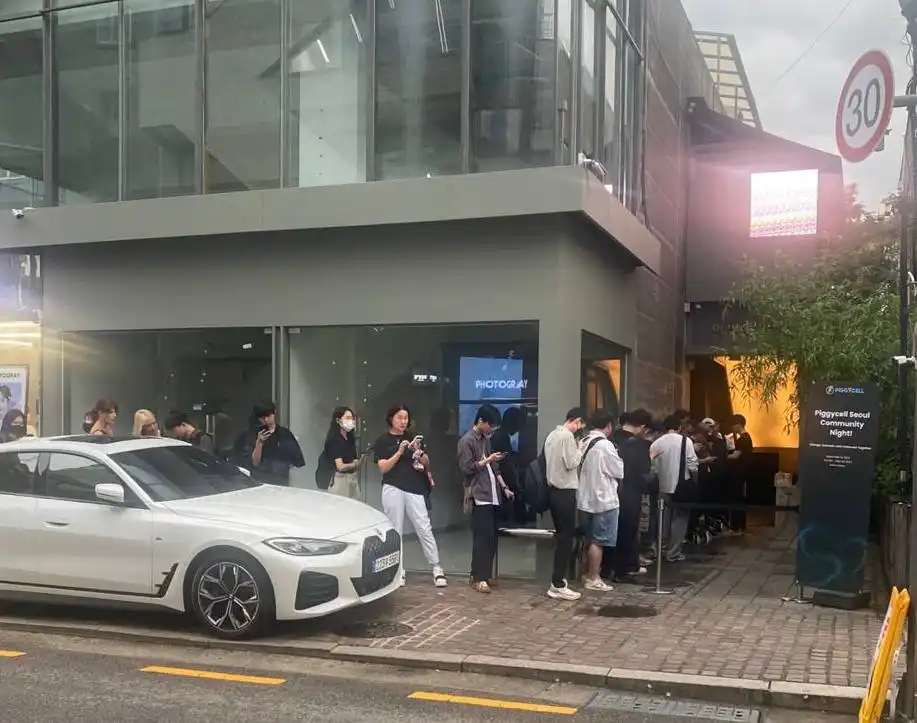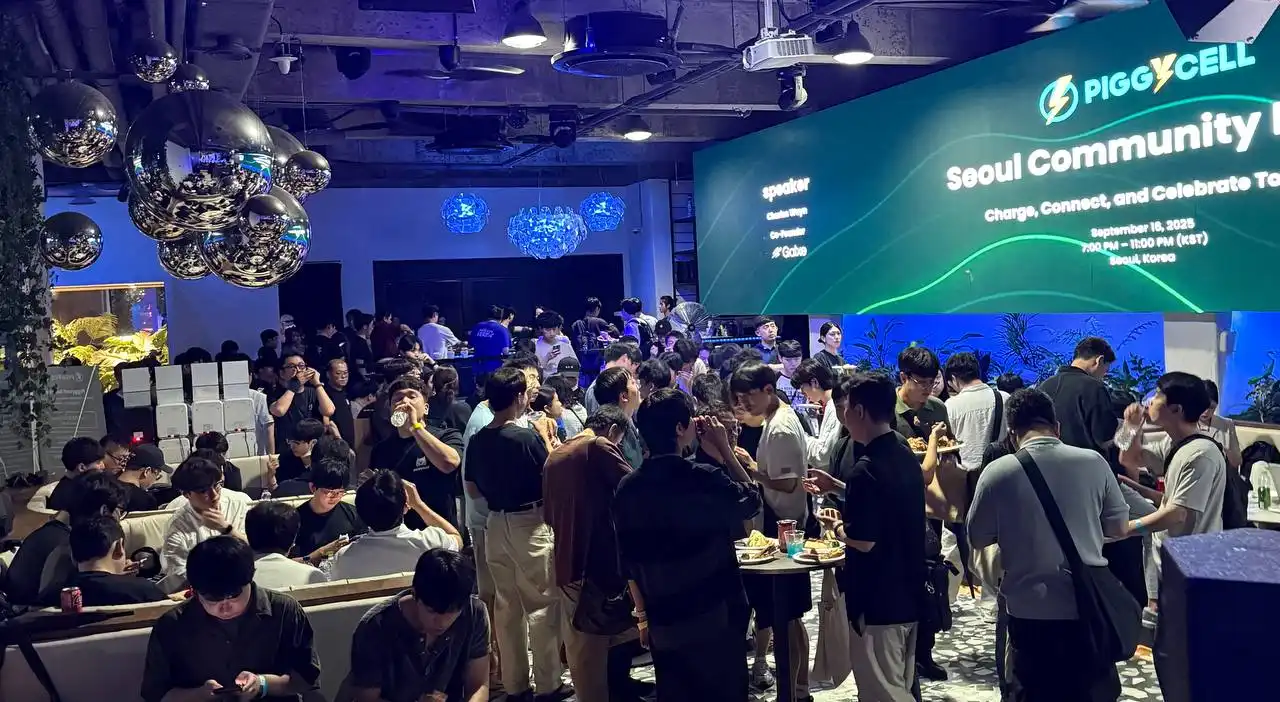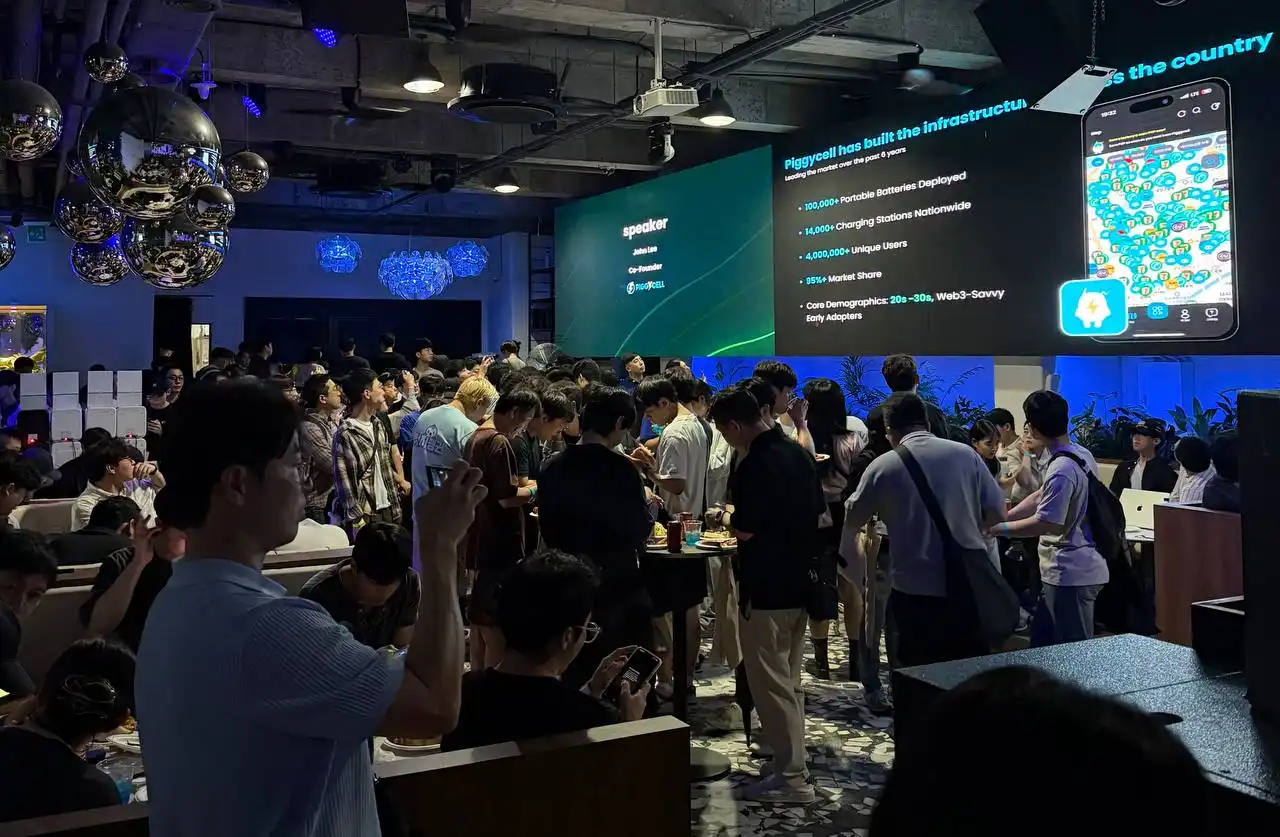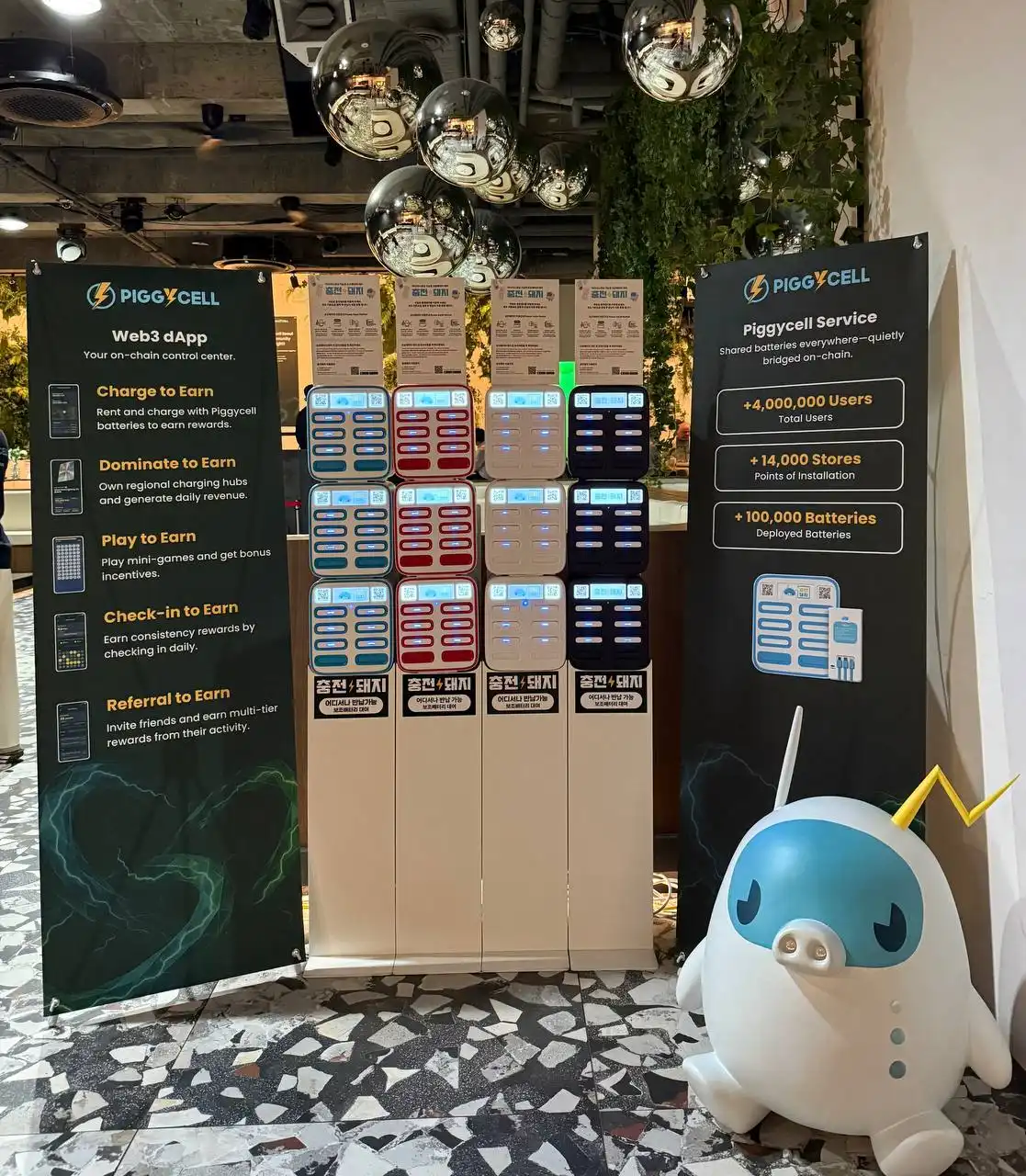Korea's leading RWA project Piggycell, Piggy Night live event demonstrates popularity: Establishing a "usage-driven RWA" paradigm through data and accountability
Heavy rain can't dampen the enthusiasm.
Original Source: Piggycell
Piggy Night on September 16 was packed, with RWA frontrunner Piggycell receiving dual endorsements from institutions and the community.
Banks and financial groups attended to show support, and Galxe co-founder sent congratulations; leveraging Korea’s leading mobile power bank sharing infrastructure as a foundation, Piggycell showcased an RWA model of “on-chain usage data.”
In Seoul, despite the rain, Piggy Night on September 16 was filled to capacity. In addition to Korean KOLs, holders, community members, and investors, several traditional financial institutions (banks/financial groups) were present to support Piggycell, which is regarded as a representative RWA project in Korea; the co-founder of Galxe also sent special congratulations.


During the event, Piggycell publicly shared its vision, roadmap, and current status. All core members appeared with real names and in person, engaging in face-to-face communication with the community, thereby narrowing the distance, enhancing understanding and emotional connection, and demonstrating transparency and accountability to prove the project is not a so-called “scam.” The event also showcased the expectations and support of Korean users for Piggycell.
The model’s highlight lies in the on-chain verifiability of real usage data:
Charge-to-Earn: Earn continuous incentives during the rental period based on charging duration, with relevant data verifiable on-chain;
Dominate-to-Earn: Issue device NFTs by region, distributing real income to holders through a transparent mechanism.



This model helps to repair the information asymmetry in the traditional sharing economy and introduces Web2 users into Web3 in a more natural way. Relying on a nationwide shared mobile power bank infrastructure and long-term accumulated data, Piggycell aims to establish an “usage-driven RWA” industry paradigm.
In addition, during KBW, Piggycell also supported several events, such as KBW2025, and will participate in/co-host XRPSeoul2025 (hosted by Ripple), K-INFRA, and other side events, continuously expanding its ecosystem cooperation.
Disclaimer: The content of this article solely reflects the author's opinion and does not represent the platform in any capacity. This article is not intended to serve as a reference for making investment decisions.
You may also like
2025 TGE Survival Ranking: Who Will Rise to the Top and Who Will Fall? Complete Grading of 30+ New Tokens, AVICI Dominates S+
The article analyzes the TGE performance of multiple blockchain projects, evaluating project performance using three dimensions: current price versus all-time high, time span, and liquidity-to-market cap ratio. Projects are then categorized into five grades: S, A, B, C, and D. Summary generated by Mars AI This summary was generated by the Mars AI model, and the accuracy and completeness of its content are still being iteratively updated.

Mars Finance | "Machi" increases long positions, profits exceed 10 million dollars, whale shorts 1,000 BTC
Russian households have invested 3.7 billion rubles in cryptocurrency derivatives, mainly dominated by a few large players. INTERPOL has listed cryptocurrency fraud as a global threat. Malicious Chrome extensions are stealing Solana funds. The UK has proposed new tax regulations for DeFi. Bitcoin surpasses $91,000. Summary generated by Mars AI. The accuracy and completeness of this summary are still being iteratively updated by the Mars AI model.

How much is ETH really worth? Hashed provides 10 different valuation methods in one go
After taking a weighted average, the fair price of ETH exceeds $4,700.

Dragonfly partner: Crypto has fallen into financial cynicism, and those valuing public blockchains with PE ratios have already lost
People tend to overestimate what can happen in two years, but underestimate what can happen in ten years.

